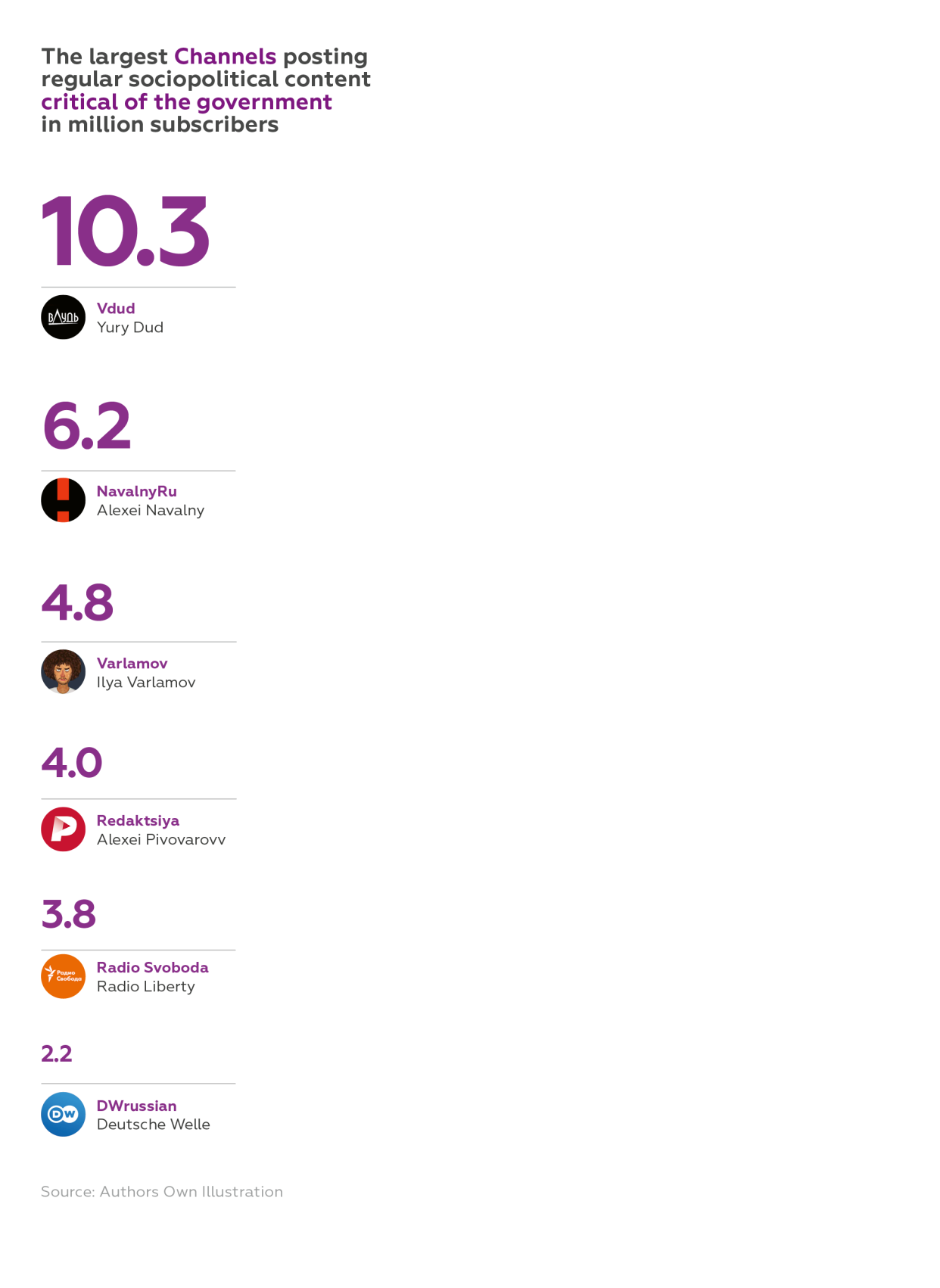Read and download the full analysis here.
Executive Summary
Amid growing authoritarianism, YouTube’s status as the last major free social media platform available in Russia hangs in the balance. Democratic policymakers must understand the critical role YouTube plays for Russian civil society, the looming threat of its ban, and the strategies Russia’s authorities employ against this bastion of freedom of expression and independent information. In line with its new Strategy for International Digital Policy, Germany should step up and get Google to cooperate to find solutions on how to keep the service running, review sanctions to facilitate the upkeep of Google’s infrastructure in Russia, and ensure the optimal functioning of YouTube, so that Russian users do not have to switch to Russian state-controlled alternatives. Banning YouTube would isolate Russian society further and undermine democratic values.
In light of Russia’s war on Ukraine, growing authoritarianism, repression, and self-isolation, and judging from previous measures taken to curtail the free flow of information on the web in the country, it is only a matter of time before the authorities ban YouTube. With over 93 million monthly users in Russia, the platform is vital for the spread of uncensored content and sociopolitical discussions across the country.
The state’s efforts to impede access to various platforms and services that it deems undesirable or a threat are becoming increasingly sophisticated. It has until now hesitated to ban YouTube or to limit access to it owing to factors such as the platform’s role in entertainment, the potential backlash from society, and technical challenges. YouTube presents unique challenges to censors due to its vast data volume, rendering monitoring and blocking it more resource-intensive.
State-controlled alternative platforms like RuTube and VK Video are not yet viable replacements. They face challenges in user engagement, content recommendation, and reliability. However, the state is actively pushing these platforms and luring creators to show exclusive content on them by offering highly remunerated contracts. Investments into these platforms might soon make them viable and lead to users switching to them. At the same time, online content creators designated as “foreign agents” face financial constraints due to loss of advertising revenue, which threatens their work.
In addition to the government’s likely goal to phase out the platform, YouTube’s performance there is threatened by the degradation of Google Global Cache servers in Russia, which are crucial for video streaming. This raises concerns about the quality and speed of YouTube’s service, potentially prompting users to explore domestic alternatives.
In response to these challenges, the following recommendations are made:
- Democratic policymakers should prepare for a YouTube ban in Russia, prioritize cooperation with Google, and urge it to devise swift solutions to hurdles to access set up by the country’s authorities.
- As alternatives like RuTube and VK Video emerge, Google – with support from democratic governments – must maintain YouTube’s availability in Russia against attempts to block it. Ambiguities in the Western sanctions that affect maintaining the infrastructure to keep YouTube available in Russia must be addressed. Dissident content creators must be supported to keep up their work.
- YouTube in Russia likely operates at a loss for Google. Despite this, Google is not inclined to withdraw from the Russian market, as this would pose significant challenges for a future re-entry. Democratic policymakers should use this to urge the company to sustain YouTube in Russia.
- Google needs to quickly develop ways to keep YouTube accessible in Russia, including technical solutions like traffic obfuscation. These measures can make blocking the platform more difficult, potentially obstructing the authorities and preserving Russians’ freedom of expression and access to vital information.



